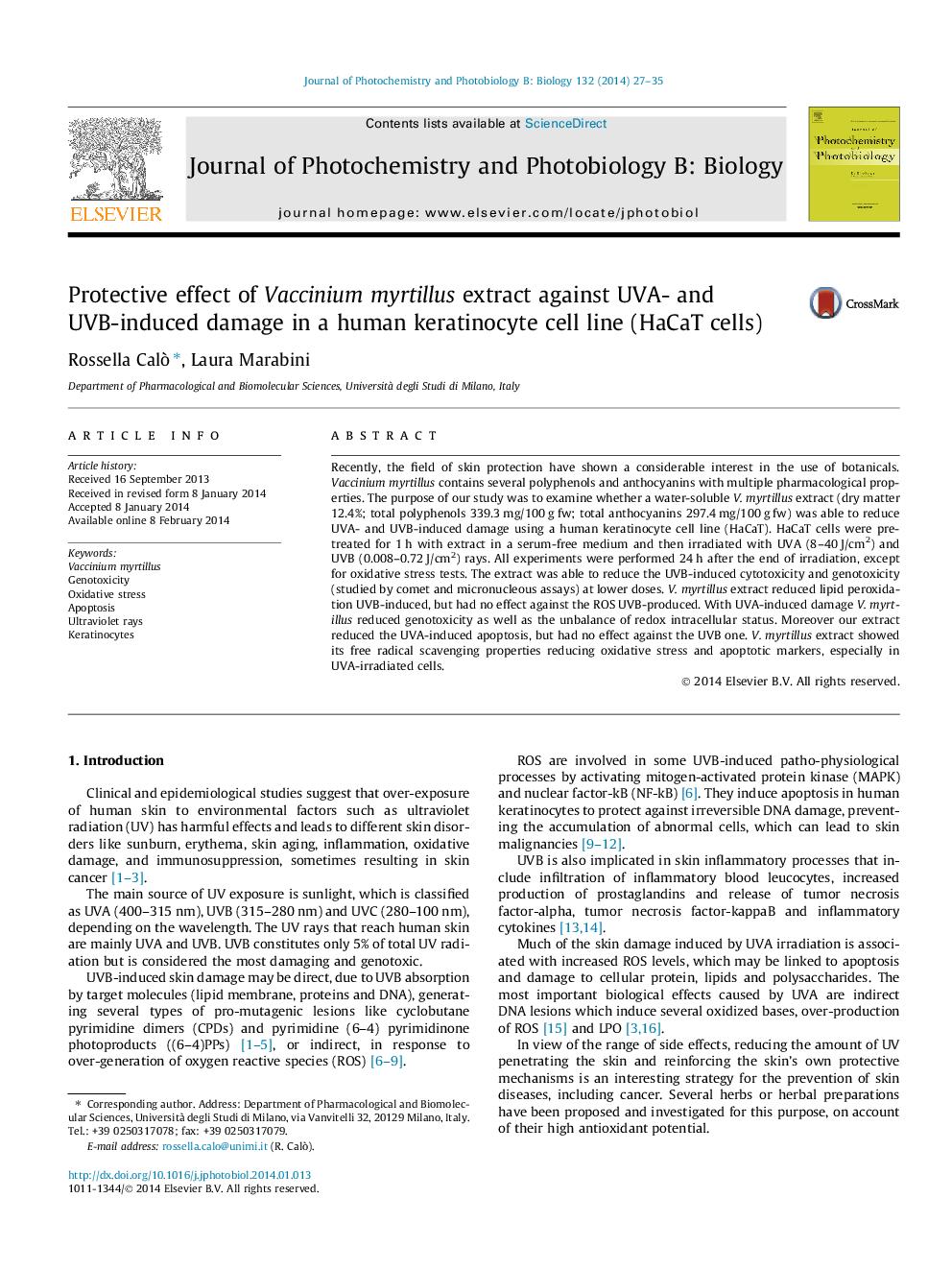| Article ID | Journal | Published Year | Pages | File Type |
|---|---|---|---|---|
| 29417 | Journal of Photochemistry and Photobiology B: Biology | 2014 | 9 Pages |
•Vaccinium myrtillus (V. myrtillus) extract decreases UVA-induced oxidative stress markers.•V. myrtillus extract slightly reduces UVA- and UVB-induced DNA-damage.•V. myrtillus extract is able to decrease the apoptosis mitochondrial-related pathway.
Recently, the field of skin protection have shown a considerable interest in the use of botanicals. Vaccinium myrtillus contains several polyphenols and anthocyanins with multiple pharmacological properties. The purpose of our study was to examine whether a water-soluble V. myrtillus extract (dry matter 12.4%; total polyphenols 339.3 mg/100 g fw; total anthocyanins 297.4 mg/100 g fw) was able to reduce UVA- and UVB-induced damage using a human keratinocyte cell line (HaCaT). HaCaT cells were pretreated for 1 h with extract in a serum-free medium and then irradiated with UVA (8–40 J/cm2) and UVB (0.008–0.72 J/cm2) rays. All experiments were performed 24 h after the end of irradiation, except for oxidative stress tests. The extract was able to reduce the UVB-induced cytotoxicity and genotoxicity (studied by comet and micronucleous assays) at lower doses. V. myrtillus extract reduced lipid peroxidation UVB-induced, but had no effect against the ROS UVB-produced. With UVA-induced damage V. myrtillus reduced genotoxicity as well as the unbalance of redox intracellular status. Moreover our extract reduced the UVA-induced apoptosis, but had no effect against the UVB one. V. myrtillus extract showed its free radical scavenging properties reducing oxidative stress and apoptotic markers, especially in UVA-irradiated cells.
